
Kia ora! This page is full of useful bits to assist you throughout today. Here you will find:
- Koha information
- Te Papa Wi-Fi
- Slido instructions
- Workshop (11.30am-12.45pm): Table plan and Questions
- Full programme
- Final session: reflections
- He mihi
Please click on one of the titles above, or keep scrolling to find what you need.
Koha information
In keeping with our theme of reciprocity, and because this event is free of charge, we invite you to contribute some koha directly to one of the below organisations. Any amount is good – nothing is too small.
Tangoio Marae
Tangoio Marae, just north of Ahuriri (Napier), was severely impacted during Cyclone Gabrielle. The Deep South Challenge has a special relationship with Tangoio, who participated in a research project about climate impacts and decision-making for their marae, back in our first phase: Exploring coastal adaptation pathways for Tangoio Marae: Serious games to help climate adaptation decisions. We feel heart-broken for the marae, but equally inspired by their tenacity in protecting each other and their taonga tuku iho.
Koha direct: 03-1517-0011436-003, Reference: koha
Trees That Count
We hope our conversations day bring oxygen to your work. We also acknowledge Tāne Mahuta me āna tamariki and invite you to support Trees That Count, in order to assist the work our native forests do for us. We have established a Tree Registry for Ko Papa Ko Rangi to make it easy to contribute. Take me to the Ko Papa Ko Rangi tree registry…
Te Papa Wi-Fi
To access the correct Wi-Fi
- Connect to Tākina Events
- Access code: events
- Accept the T&Cs
Slido information
Feel free to pop any questions you might have for the panelists through, and we will try our best to get to them at the time. Otherwise, they will help inform any further work going forward.
- Event link: https://app.sli.do/event/oWD22VJHPjaJd5iZ1km4Gq
- Event code: 1075986
Workshop: Table plan and questions
This map shoes you which themes are being explored at which tables:
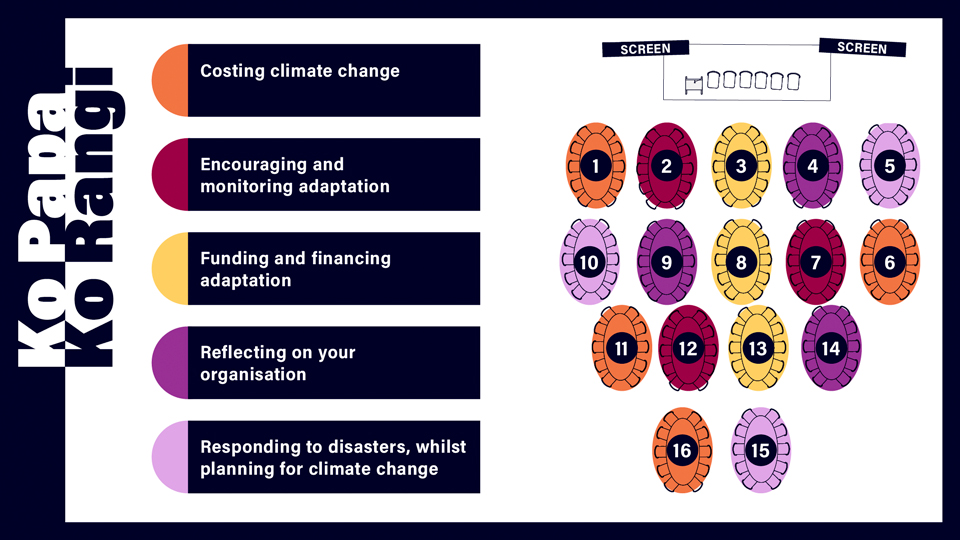
Please spend some time to discuss and write down anything you can think of on your topic at your table. Once you have spent a bit of time on it, feel free to check out any other topics that interest you. Our kaimahi will be on hand to support.
Costing climate change:
- From your perspective what do we still need to understand about how climate change will “cost” us?
- How can we quantify and incorporate the benefits of adaptation into our decision-making frameworks? Do you know examples of how others have done this well?
- How can Matauranga Māori and non-Māori economic tools work together to understand the impacts of climate change, and the benefits of adaptation?
- What is needed to develop an ideal framework for comparing costs of different adaptation actions (and inaction) over the next 100 years?
Encouraging and monitoring adaptation:
- How will we know if we are adapting well as a country to the risks of climate change? What questions should we be asking?
- If Te Tiriti was at the heart of our work, what would good adaptation look like?
- What tools could we be using to encourage successful adaptation?
- What tools could we be using to monitor successful adaptation?
Funding and financing adaptation:
- What funding exists for frontline adaptation now?
- Do you know of any innovations that you would recommend to drive, fund or finance adaptation action?
- How might indigenous-led solutions for climate and biodiversity be given more attention or resourcing?
- What do these innovations need to become viable and/or how can they be incorporated into business as usual?
Reflecting on your organisation:
- What are the main drivers of decision making or resource allocation in your organisation? What are the stated and unstated values behind these drivers?
- How does your work align with equitable, efficient, effective adaptation? Where can it be improved?
- Considering both your practised values and your economic decision tools, where do you see your organisation or sector in 10/20 years’ time?
- Where are the break/change points for your organisation, and what is needed to achieve optimal and equitable action for climate adaptation?
Responding to disasters, whilst planning for climate change:
- How do our responses to severe weather events align (or not) with our financial and social needs to plan long-term for climate change adaptation?
- What are the current barriers? What is needed for this to be able to be done well?
- How might indigenous-led solutions for climate and biodiversity be given more attention or resourcing?
- How can the private and public sectors be used to activate change in how we manage climate-related risks? What are some examples of this done well?
Programme
9-9.30am | Registrations, Tea & coffee, Koha, Find your seat
We look forward to seeing you at the registration desk!
9.30-9.45am | Welcome and whakatūwhera
With our host for the day, Māni Dunlop
9.45-10am | Keynote: How is our current economic pathway creating our climate future?
We’ve invited a very special and internationally renowned guest to speak to the challenges ahead of us, whether we change our change our thinking or not, but especially if we do not.
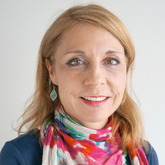
Koko Warner
Koko Warner is a climate change expert who specialises in human migration and displacement. She has worked in the United Nations for over 16 years, directing research on climate change and migration, and climate risk management, before joining the secretariat to the UN Framework Convention on Climate Change (UNFCCC) to supervise the climate impacts, vulnerabilities and risk policy workstreams in its adaptation division. Koko is currently leading UN work to implement the IOM Migration Data Strategy 2020–25 by bringing together IOM’s data expertise on data collection, analysis and sharing; migration data governance; and forecasting, among others.
Koko has contributed to understanding, managing, and informing policy about adverse climate impacts, climate change and migration, and loss and damage. Koko holds a PhD in economics from the University of Vienna and in 2014, was named by the International Council for Science as one of the top 20 women making contributions to climate change debate.
10-11.10am | Panel: A wider lens: How do we conceptualise the costs of climate change?
We know that work is getting underway across Aotearoa to quantify the costs of climate change, including the costs of adaptation or of failure to adapt. But how do we understand “cost”? Does it encompass the fullness of our environmental, human, social, cultural (and financial) worlds that are central to our experiences of and response to this crisis. Can our current economic thinking really lead to effective climate adaptation? If we can’t or don’t consider some costs, how can we ensure these are factored in our adaptation decisions?
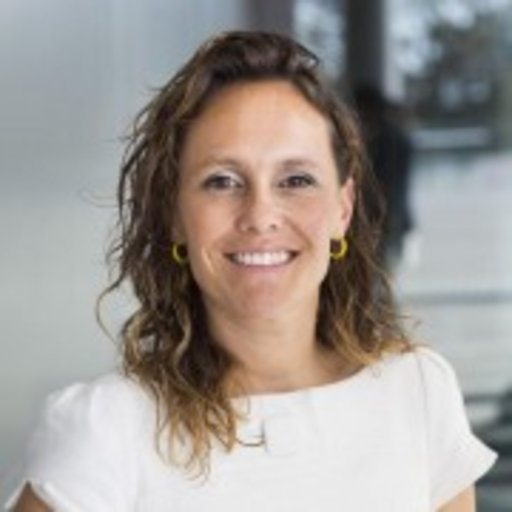
Kiri Dell (Ngāti Porou)
Dr Kiri Dell is a Senior Lecturer in the Business School at the University of Auckland. She is a Ngāti Porou woman living in her tribal territory of Ruatōria. Her main passion is working with whānau and activating their aspirations for whenua Māori. She holds various director, trustee and board roles across a number of organisations, and is a chair of the Indigenous Caucus of the Academy of Management. She has a lively and large whānau, which enables her to play the many roles of mum, aunty, daughter, sister, cousin and niece.
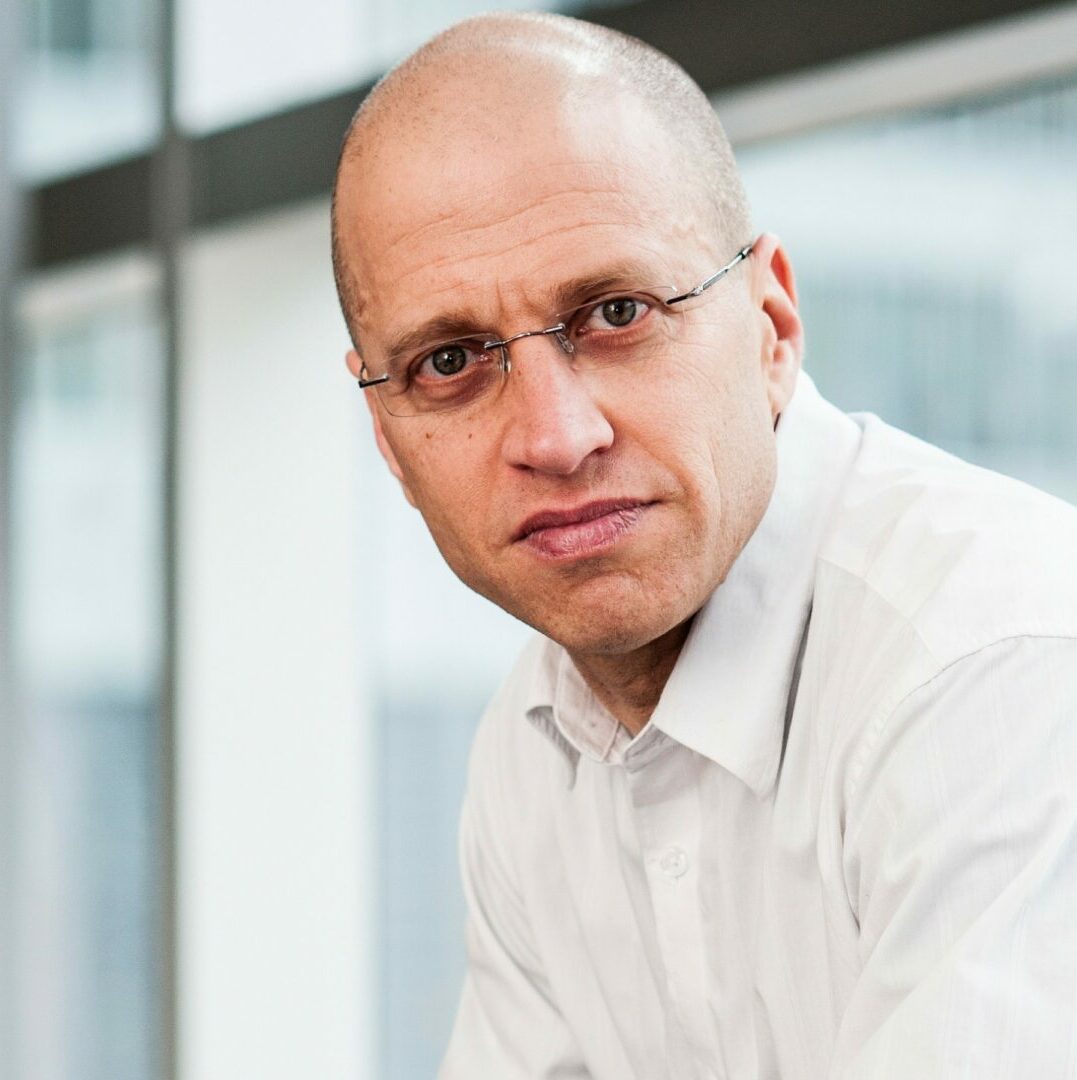
Ilan Noy
Ilan has been the Chair in the Economics of Disasters and Climate Change at Victoria University of Wellington since 2013. His focus is on the economic aspects of natural hazards, disasters, and climate change, and other related topics in environmental, development, and international economics. He is also the founding Editor-in-Chief of the journal Economics of Disasters and Climate Change. He has consulted for the World Bank, the Asian Development Bank, the Inter-American Development Bank, UNDRR, the IMF and ASEAN.
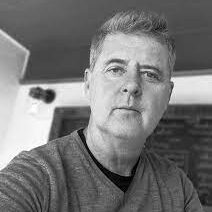
Mark Baker-Jones (Ngāpuhi, Ngāruahine)
Mark is a world-leader in climate change regulatory and policy risk, and Kaitohutohu Panoni Āhuarangi (Climate Advisor) with Te Whakahaere. Mark was political advisor to the Climate Change Minister during the development of NZ’s climate change legislative regime. Mark has held senior legal roles in some of the world’s most prestigious law firms, and has published widely on climate legal risk. He has unique insights into climate change legal risk, policy and regulation, particularly for the financial sector.
11.10-11.30am | Morning tea
Enjoy a light kai and return to your tables for our workshop session.
11.30am-12.45pm | Workshop: The experts are as lost as the rest of us!
A workshop to support you to uncover the drivers for and barriers to climate adaptive approaches, and brainstorming creative solutions.
12.45-1pm | Transition risk!
Our host Māni Dunlop will help you transition from workshop to lunch, energised enough to return with focus for our afternoon session.
1-2pm | Lunch
Earth-friendly kai from some of our best local producers.
2-3.10pm | Panel: Funding and financing the future
In the end, how can we overcome the current barriers to investment in and funding for climate adaptation? If we consider that the “costs” of climate change include environmental, human, social, cultural and financial costs, what innovative solutions are, or could be in play to respond equitably and effectively to this crisis? In this panel, we bring together possibilities and provocations that interrogate government policy levers, alternative business strategies, and private sector mobilisation.
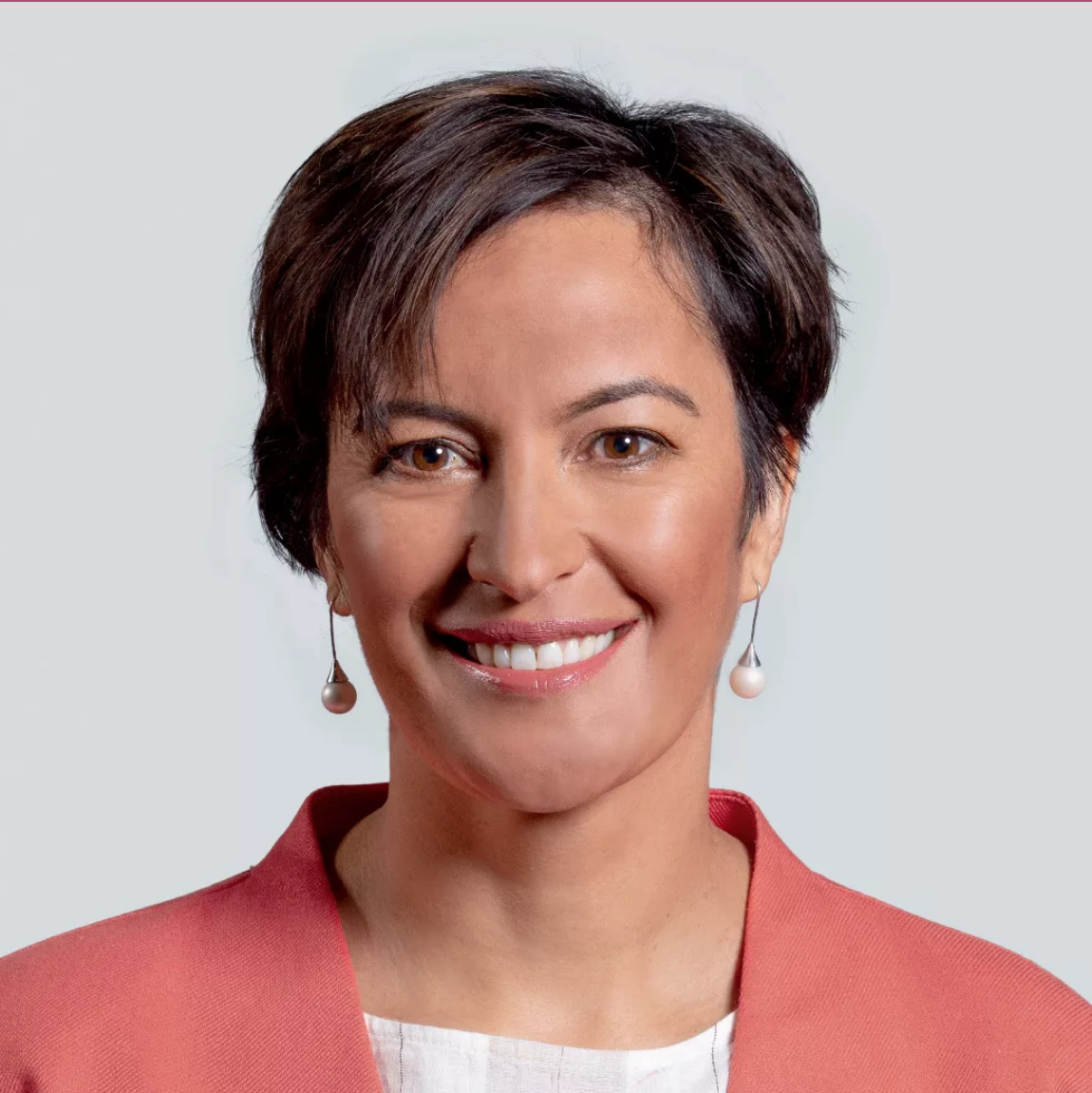
Riria te Kanawa
Riria is a partner at KPMG, whose work focuses on simplifying the complex so clients are better placed to make clear, focused and guiding strategic choices, map the pathway to achievement, and most importantly, execute. In a world of constant change, Riria helps clients to challenge their own status-quo and bring a customer- rather than a process-centric lens to their work. Riria is passionate about working with Māori, considering how business approaches and measures of success can better reflect our Māori worldview as we pursue the perfect balance between people, planet and pūtea.
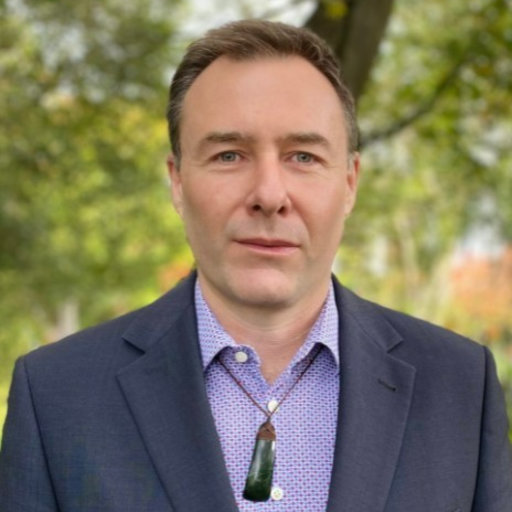
John Reid (Ngai Tahu)
John leads research programmes attempting to solve complex socioeconomic problems by utilising systems thinking and indigenous wisdom traditions. He has a particular interest in relationships between human and non-human beings and the role of appropriate technologies and insight in generating symbiosis between them. Currently, John leads national research programmes that bring together science, industry, and indigenous communities to address sustainability challenges related to New Zealand’s oceans, freshwater, land and biodiversity.
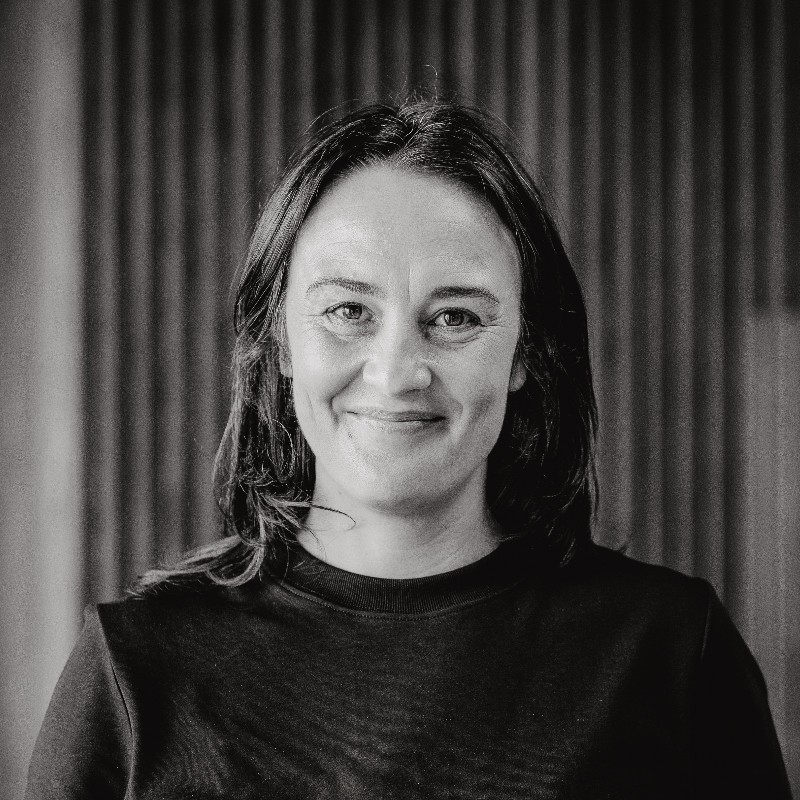
Jo Kelly
Jo is Chief Executive of Toitū Tahua, the Centre for Sustainable Finance. Jo has delivered cross-continent sustainability initiatives between some of the world’s best known business leaders. Jo is also on the B Lab Australia New Zealand Board and the National Advisory Board for Impact Investing. In 2011 Jo managed establishment of The B Team, which led the first calls from business for Net Zero by 2050 and an ambitious Paris Agreement. On returning home to Aotearoa NZ Jo spent four years with Deloitte New Zealand. Jo is of Ngati Tuwharetoa, Scottish and Finnish descent.
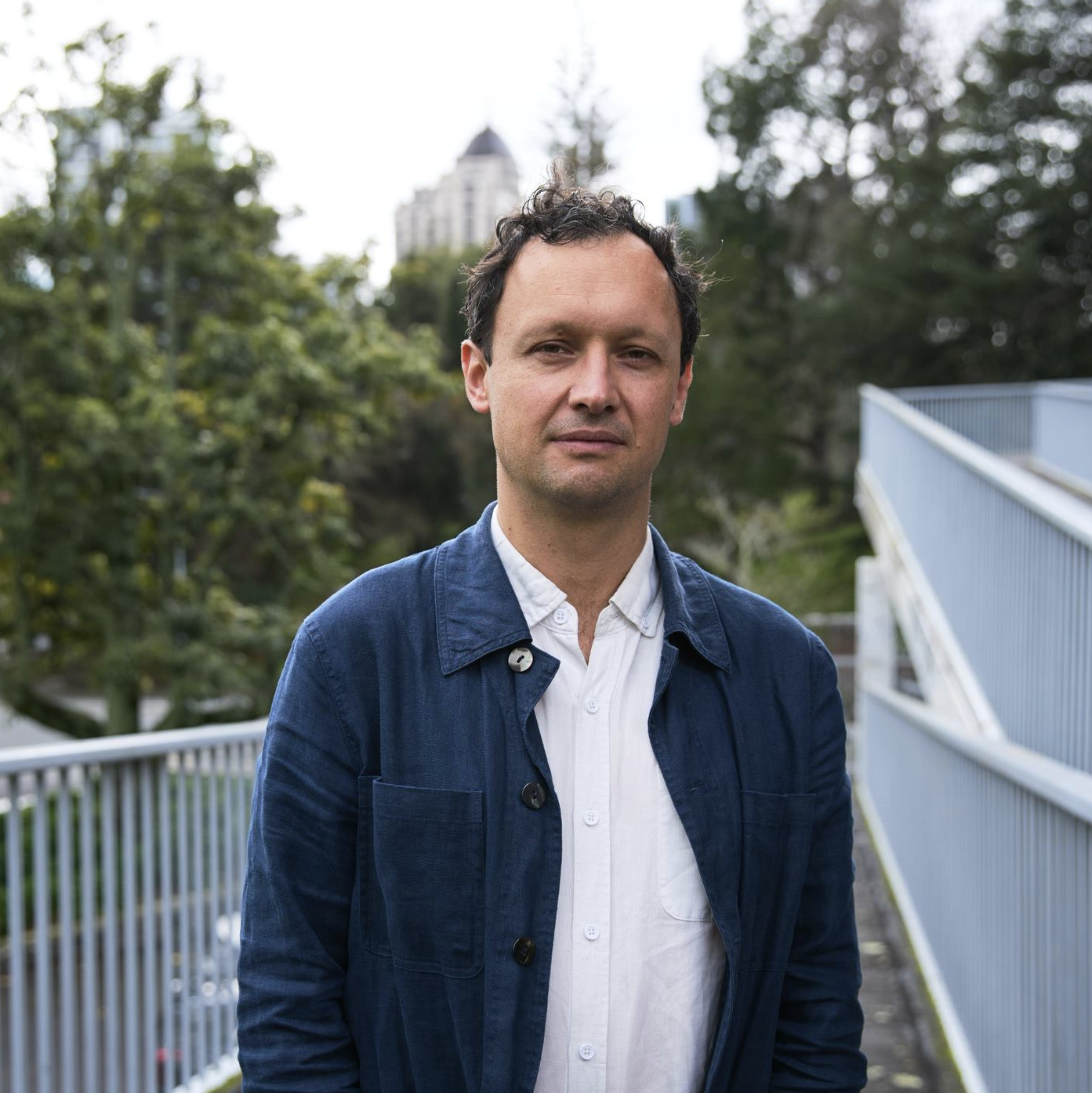
David Hall
Dr David Hall is Climate Policy Director at Toha with expertise in climate action, land use change, sustainable finance and just transitions. He has a DPhil in Politics from the University of Oxford and has additional roles as Adjunct Lecturer at AUT University’s School of Social Sciences & Public Policy, member of the Forestry Ministerial Advisory Group, Contributing Author to IPCC AR6 WG2, and Principal Investigator for AUT’s Living Laboratories Programme of nature-based solutions. Previously he has worked with a diverse range of public and private sector stakeholders on climate innovation and publishes widely in a range of academic and public-facing media, which includes the 2022 report, Adaptation Finance: Risks and Opportunities for Aotearoa New Zealand.
3.10-3.40pm | Afternoon tea
Enjoy a pick-me-up before our final keynote and brainstorming sesion.
3.40-4pm | Keynote: Sounds great, but can any of these ideas really work?
Firebrand finance journalist Shamubeel Eaqub will speak off the cuff, attempting to draw in the threads, expose them to the sun and the wind, and provide his perspective on the arguments and ideas of the day.

Shamubeel Eaqub
Shamubeel is an experienced economist who makes economics easy. He is a thought leader unafraid to take a contrarian view. An engaging and knowledgeable speaker, Shamubeel is a regular and respected contributor to media, government and business sector discussions on economic and strategic matters. He holds a BCOM with honours in Economics from Lincoln University and is also a Chartered Financial Analyst (CFA). Shamubeel has authored Growing Apart: Regional Prosperity in New Zealand, and co-authored Generation Rent and The New Zealand Economy: An Introduction.
4-4.45pm | Reflections
A brainstorming session to ensure we have captured questions that haven’t been answered, gaps in knowledge and research, contradictions and paradoxes, and to explore some practical options for change in your every day work.
4.45-5pm | Closing
We come back together to close the day and set intentions for the future.
5pm onwards | Refreshments at Te Papa
We invite you to enjoy refreshments and some more casual kōrero, to wind down for the weekend after an epic and hopefully inspiring day.
Final session: reflections, and post-symposium survey
Questions for discussion:
What is one thing or conversation that has really resonated with you?
What is one thing that you might take away and use in your day to day?
He mihi
While it’s not possible to thank everyone involved in bringing this event together, we do want to make some special mentions. Thank you to:
- Each and everyone of you, our manuhiri, for attending with open minds and in the spirit of reciprocity
- Our guest speakers, those who appeared on our podcasts, and those who presented today
- Woody Tree, for bringing some quirky Wellington magic to our event
- PopSock Media, Kirsten Johnstone and all the tech support at RNZ
- The ringawera and staff at Te Papa
- Mana whenua of Te Whanganui-a-Tara, arā ko Taranaki Whānui me Ngāti Toa Rangatira
- Ko Papa rāua ko Rangi, me ā kōrua tamariki